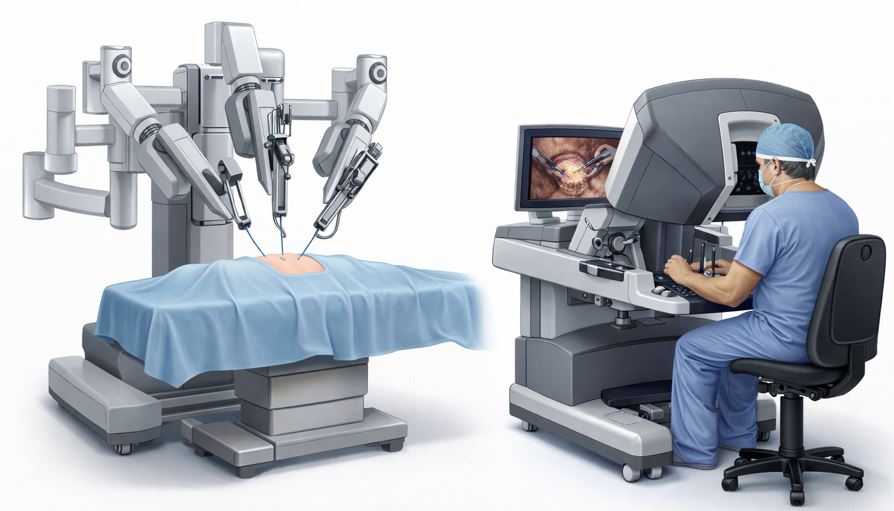What Is Metabolic Syndrome and How Does It Affect Your Health?
You may have heard the term metabolic syndrome from your doctor. It simply means that several common health problems are happening together. These include:
- Carrying too much weight around your belly
- Having high blood pressure
- Having high blood sugar or type 2 diabetes
- Having unhealthy fat levels in your blood (such as high triglycerides or low “good” cholesterol)
These problems often go hand in hand, and they raise the risk of heart disease, stroke, and diabetes. But new research now shows they may also raise your risk of bladder cancer.
Does Metabolic Syndrome Increase the Risk of Bladder Cancer?
A large study published in 2025 looked at over 665,000 people. It found that people with metabolic syndrome were 60% more likely to develop bladder cancer than people without it.
It doesn’t mean everyone with these issues will get bladder cancer—but it shows there’s a clear link. The more of these problems a person has, the higher the risk becomes.
Which Health Problems Raise the Risk of Bladder Cancer the Most?
Some parts of metabolic syndrome are more closely linked to bladder cancer than others.
Here’s what the research found:
- People with high blood sugar or diabetes had one of the highest increases in risk
- High blood pressure also raised the risk, but not as much
- Having low levels of healthy cholesterol (called HDL) or high blood fats (like triglycerides) was also linked
- Being overweight on its own wasn’t clearly linked, but it often makes other issues like high sugar or blood pressure worse
How Do High Blood Sugar and Pressure Affect the Bladder?
Your bladder is lined with delicate cells, and over time, certain health problems can make these cells more likely to change or become damaged.
Things like:
- Long-term high blood sugar (diabetes) can lead to inflammation and stress inside the body
- High blood pressure and poor cholesterol can damage blood vessels and tissues
- Unhealthy fats in the blood can affect how well your cells repair themselves
Over time, these changes may lead to abnormal cell growth — which increases the chance of cancer, including in the bladder.
Simple Steps to Lower Your Risk of Bladder Cancer
What's the good news? You can take simple steps today to reduce your risk—and improve your health overall.
Here’s what can help:
- Be active—walking for 30 minutes most days makes a real difference
- Eat better—more vegetables, fruit, whole grains, and healthy fats like olive oil or nuts
- Cut down on sugar and processed foods – even small changes matter
- Avoid smoking—smoking is one of the top causes of bladder cancer
- Take your medications—for blood sugar, blood pressure or cholesterol, if prescribed
- Get checked regularly—routine blood tests and health checks are key
Even if you have one or more of these conditions, managing them well can reduce your risk of bladder cancer and other serious health issues.
Should You Be Concerned About Bladder Cancer Risk?
Most people with metabolic syndrome will not develop bladder cancer. But being aware of the risk helps you take action early.
Think of it like this:
- You’re not being told something scary — you’re being given a chance to do something helpful
- Looking after your heart, blood sugar and weight also helps protect your bladder
- Small improvements over time really do add up
You’re not alone, and you don’t have to change everything overnight.
When to See Your GP About Bladder or Urine Symptoms
If you notice any of these symptoms, speak to your GP:
- Blood in your urine (even once)
- Pain or burning when you pass urine
- Going to the toilet more often than usual, especially at night
- A feeling that your bladder isn’t emptying properly
- Unexplained weight loss or fatigue
These symptoms don’t always mean something serious —but it’s important to get them checked early.
Taking Control of Your Health to Protect Your Bladder
Your general health and your bladder health are connected.
If you’ve been told you have high blood pressure, diabetes, or raised cholesterol, don’t panic — but take it seriously. These are common and treatable conditions.
With simple changes to how you eat, move, and manage your day, you can feel better, live longer, and reduce your risk of bladder cancer at the same time.


